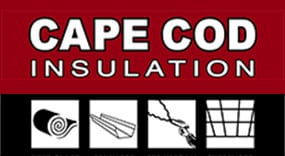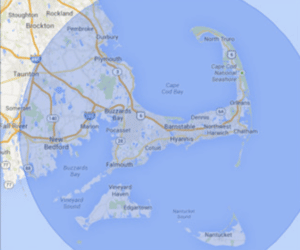Here’s an interesting video from our friends at Energy Vanguard that shows how much air can leak through simple things like light switches.
Uncategorized
Winter’s coming. It’s already heating season. So how do you save money on heating costs? You’ve got to own your heat. Simple as that. You’ve paid for all that warm air already, so it doesn’t make much sense to waste it now.
A simple enough premise – it’s the application that gets complicated. We (and most building science experts) strongly recommend air sealing and insulation as high priority measures to make your home use less energy, make you more comfortable, and make the planet happy.
Air sealing can sometimes be done by a competent do-it-yourself-er, but insulation is trickier. It generally has to be done by a contractor, and for the most part can only be installed by getting inside walls that are now closed up. And unlike air sealing flaws, which you can often see just by scanning your basement walls, the quality of insulation in your house is, for the most part, difficult to assess. (Thankfully, the attic, which is the most critical spot for insulation, is the easiest to access).
This is an important point, because even if all insulation is created equal (a separate discussion), that doesn’t necessarily mean that all insulation is equally well installed – which, in this case, may be just as important. Insulation only works when it’s installed to specifications, and when it’s in good shape. So even if there is insulation in your walls, even if you’ve seen it or paid for it or been told by your real estate agent that it’s there, it may be sleeping on the job.
The best way to assess the quality of otherwise “invisible” insulation is a home energy audit from a qualified home energy auditor with an infrared scanner, which will reveal where there are problems with your insulation.
Another reason why a home energy audit is really a problem-solving exercise. After you have it done, you’ll know where the issues are. Without it, your home might just remain an unsolved mystery… The Case of the Cold House and the Disappearing Dollars.
SCHEDULE YOUR FREE ESTIMATE TODAY
On cold winter days, a ray of sun streaming into your house can be most welcome – a free source of heat. But what about in the summer, when those rays of sun and other, less-evident solar heat, seep into our already too-hot houses and become a costly nuisance? Well, what happens is that you lose money. But using landscaping (namely by planting trees) to shade your home can be a great way to lower energy costs.

Thanks to (get ready for a big word!) evapotranspiration (big, but not scary: it’s just the tree or plant releasing water vapor), air temperatures can be reduced up to 9° Farenheit in areas around trees, which creates a cool microclimate. Adeptly placed trees can cut air conditioning costs in the summer by 15%-50%, and one well positioned tree has the daily cooling effects of five air conditioners running for 20 hours a day. And it’s easy to figure out where to place these trees: close to windows!
Shading east- and west-facing windows with trees can reduce costs in any climate, and south-facing windows just need a little more thought. In a hot climate? Go for it, shading will keep energy costs down year round. In a cold or mixed climate? Consider planting deciduous trees so you don’t run the risk of impeding welcome solar heat in the winter.
According to the Department of Energy, the average return on investment for landscaping as a means of low energy cooling is less than 8 years. And if you plant trees as saplings, it’s likely that they will begin shading your windows within a year, and reach the roof within the next 5 to 10 years (depending on tree species and climate).
But then again, since when did we need to do an ROI calculation for planting a tree?
SCHEDULE YOUR FREE ESTIMATE TODAY

You may have heard about home energy audits before, but maybe you’re not quite sure that you need one. After all, your home is relatively new. It’s pretty comfortable most of the time, and your utility bills aren’t that bad. Maybe you’ve switched out your incandescent light bulbs for CFLs, and upgraded to a low flow showerhead, so figure there’s not much more you can do.
Well, there’s a lot more to home energy than lightbulbs and solar panels, and a home energy audit is the place to begin. Here are 5 ways that a home energy audit from a certified home energy auditor will likely improve your life — right away.
IMPROVE YOUR HOME’S COMFORT.
Energy savings are one of the primary reasons people sign up for energy audits, but oftentimes they’re actually more excited about the improved comfort once the work is done. Cost savings are good, but there’s something hugely refreshing about walking into a once-cold room for the first time after an energy retrofit and noticing that the drafts are all gone.
REDUCE YOUR ENERGY BILLS.
The amount of money you can save on heating and cooling bills varies from home to home, but it’s typically substantial. Most new homes built to code are grossly inefficient. Insulation is often improperly installed; air leaks around service penetrations, windows and doors are abundant; and leaks in the building envelope often permit uncontrolled moisture to enter the home – causing indoor air quality problems and potential durability risks.
IMPROVE INDOOR AIR QUALITY.
According to the EPA, indoor air quality is a greater threat to public health than outdoor air — even in the most polluted cities. This is because of chemicals from building materials, mold and other toxins caused by uncontrolled moisture, radon, dust, and a variety of other factors; and is compounded by a lack of adequate, controlled ventilation. An comprehensive energy audit takes each of these factors into consideration to ensure that your home is not only energy efficient, but safe.
INCREASE YOUR HOME’S RESALE VALUE.
A home energy audit is the first step toward a more energy efficient home. In an era of turbulent, rising energy prices, homebuyers and real estate professionals are increasingly looking at a home’s operating cost as a point of value when looking at homes. An energy efficient home has lower energy bills than an inefficient, code-built home, making it an attractive option.
PEACE OF MIND.
Do you know how much energy your home is wasting? Are you sure that the air in your home is safe to breathe? Is there radon in your basement? Are air leaks in your ceiling causing moisture to build up and pose a risk of rot and structural damage? During a comprehensive energy audit, you’ll get an answer. Considering that your home is likely the biggest investment you’ll make in your life, it’s worth ensuring that it’s safe and healthy. We can help.
Contact us for more information, or to schedule an energy audit today.

